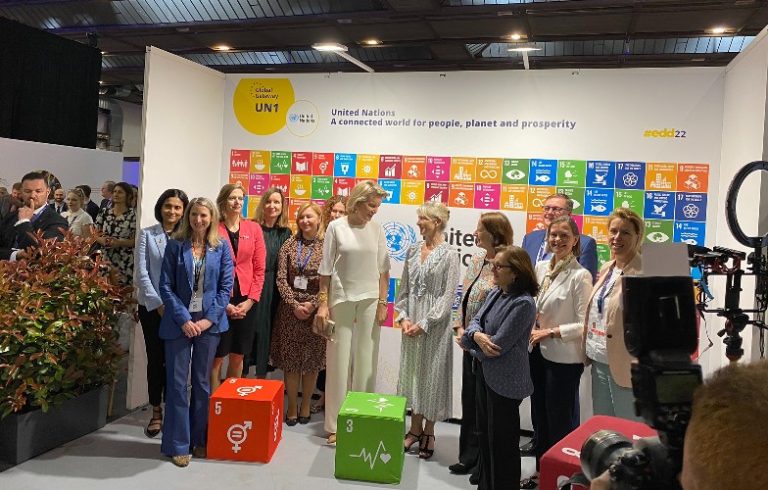
The European Development Days are Europe’s leading forum on international partnerships. Organised by the European Commission, the EDDs bring key actors together to share ideas and experiences in ways that inspire new partnerships and innovative solutions to the world’s most pressing challenges.
As a key partner of the European Union, the United Nations is excited to be participating in the 2022 edition of the European Development Days. The EDDs constitute a key opportunity for the UN Family to build upon, and expand, cooperation with key partners. The Agencies, Funds and Programmes of the UN will be participating in over a dozen panels, debates and brainstorming sessions.
For its 15th edition, the European Development Days will focus on “Global Gateway: building sustainable partnerships for a connected world.” Global Gateway is the new European Strategy to boost smart, clean and secure links in digital, energy and transport and strengthen health, education and research systems across the world. It stands for sustainable and trusted connections that work for people and the planet, to tackle the most pressing global challenges, from climate change and protecting the environment, to improving health security and boosting competitiveness and global supply chains.
“The Global Gateway can play a key role in advancing the SDGs, for a green and fair recovery,” says Camilla Brückner, Director of the UN/UNDP Office in Brussels. The EU’s Global Gateway also has strong synergies with proposals that form part of the UN Secretary-General’s “Our Common Agenda” report, which looks ahead to the next 25 years and represents the Secretary-General’s vision on the future of global cooperation and reinvigorating inclusive, networked, and effective multilateralism.
Additional links:
- Learn more about the UN participation at the European Development Day, here.
- Secretary-General’s report on “Our Common Agenda”
- Report of the Secretary-General on the Work of the Organization
- Secretary-General’s Roadmap for Digital Cooperation